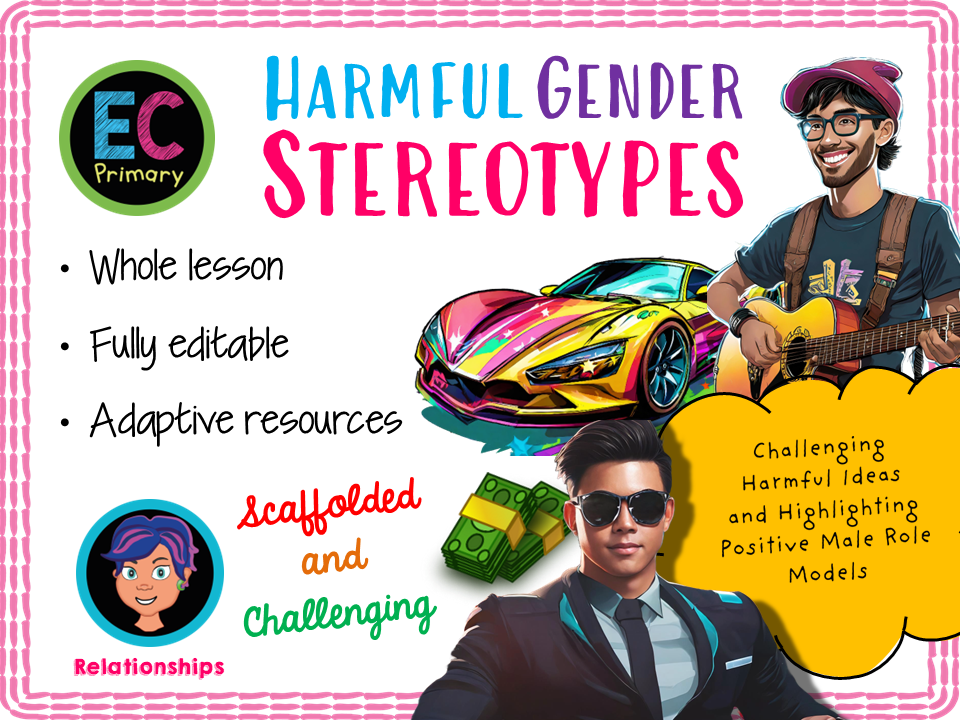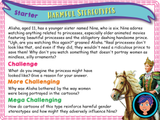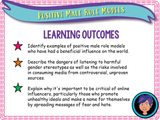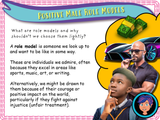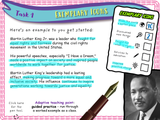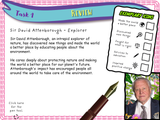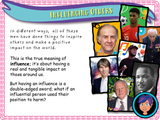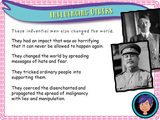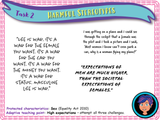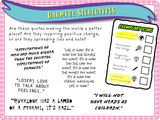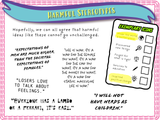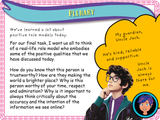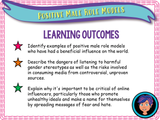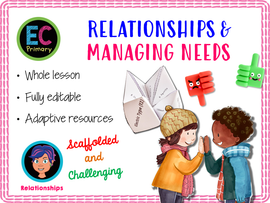Harmful Influences and Gender Stereotypes - Year 6
Harmful Influences and Gender Stereotypes - Year 6
£3.20
Positive Male Role Model - Addressing Harmful Influences and Gender Stereotypes. In this lesson, students will explore the positive qualities and characteristics to consider when choosing a role model to emulate or be influenced by. Created to counter the harmful views propagated by online influencers such as Andrew Tate, this lesson empowers children to become critical consumers of information, rather than accepting online hearsay as fact. Intended as a gentle precursor to secondary school topics of misogyny and toxic masculinity, this lesson reminds students of their previous learning on gender stereotypes and applies this knowledge to new scenarios related to harmful gender stereotypes. While this lesson does not explicitly name Andrew Tate, in line with recommendations from the PSHE Association, we will apply our critical thinking skills to an age-appropriate selection of Tate's quotes (please note that we have been careful to select examples that include no sexual references or violence). This lesson is suitable for students in UKS2 (Year 6) or possibly LKS3 students in Year 7.
Looking to save money? Check out this new 'Relationships Education' value bundle.
Looking to save money? Check out this new 'Relationships Education' value bundle.
Positive Male Role Model - Addressing Harmful Influences and Gender Stereotypes. In this lesson, students will explore the positive qualities and characteristics to consider when choosing a role model to emulate or be influenced by. Created to counter the harmful views propagated by online influencers such as Andrew Tate, this lesson empowers children to become critical consumers of information, rather than accepting online hearsay as fact. Intended as a gentle precursor to secondary school topics of misogyny and toxic masculinity, this lesson reminds students of their previous learning on gender stereotypes and applies this knowledge to new scenarios related to harmful gender stereotypes. While this lesson does not explicitly name Andrew Tate, in line with recommendations from the PSHE Association, we will apply our critical thinking skills to an age-appropriate selection of Tate's quotes (please note that we have been careful to select examples that include no sexual references or violence). This lesson is suitable for students in UKS2 (Year 6) or possibly LKS3 students in Year 7.
Looking to save money? Check out this new 'Relationships Education' value bundle.
Looking to save money? Check out this new 'Relationships Education' value bundle.


